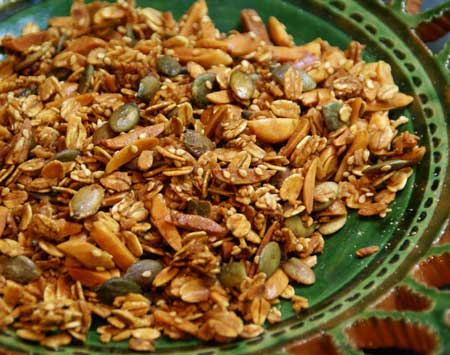


Grains I
Historically, grains were the ultimate peasant food. It
was cheap, what people lived on when they couldn’t afford
meats, poultry, fish, or eggs. Many times through out the year
vegetables weren’t available. Grains filled the stomach and got
hard working people through the day. If they didn’t have good
protein and vegetables they didn’t live long, but grains provided
what was needed for strenuous physical activity, at least short term.
We are no longer a country of physically hard working
people. We work in front of computers, driving instead of walking, or
biking to commute. Eating too many grains, and then just sitting, we
store them, when physical exertion or seasonal famine are not
depleting our reserve.
Grains are high on the glycemic index, that means, since everything we eat is converted to sugar (glucose), foods like grains are converted much faster than other things. What we don't immediately burn off is stored.
Grains are high on the glycemic index, that means, since everything we eat is converted to sugar (glucose), foods like grains are converted much faster than other things. What we don't immediately burn off is stored.
How do farmers make animals fat to
bring them to market quickly? They put them in crowded feed lots, to
keep them from moving around much, and feed them grains, instead of
letting them walk around and eat grass (herbivore vegetables). Race
horses and plow horses need lots of grains, as do athletes and people
with very high metabolisms. The rest of us have a tendency to eat too many grain products considering our lifestyle.
Other than wheat and corn, whole grains can be part of
a healthy diet. How much we consume daily should depend on how
physically active we are that day. Consuming them before physical
activity provides energy. Activity adds digestion of the grains.
Eating them when we are sedate robs our bodies of energy, and can
cause fatigue, weight gain and health problems.
Our lifestyle today is different than that of our
grandparents or great-grandparents. It is time that the amount of
grains in our diets changed as well.
Health & Happiness,
Nancy Burton, L.Ac.
No comments:
Post a Comment